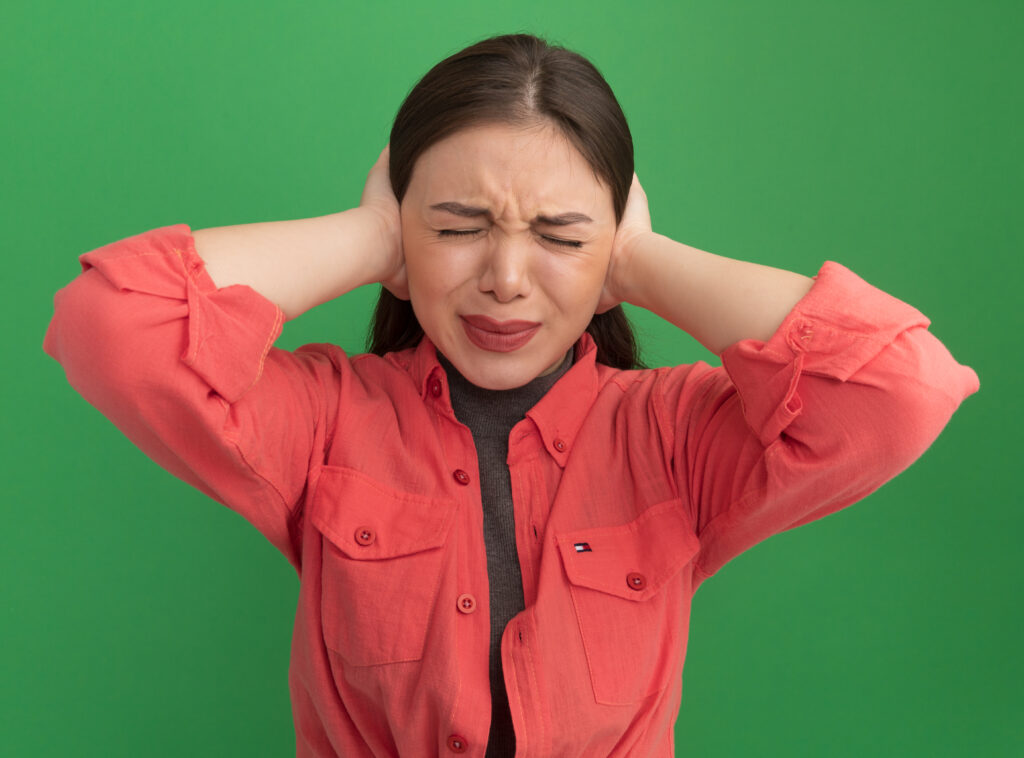Experiencing both vertigo and hearing loss can be distressing, impacting daily activities, balance, and quality of life. Often, these symptoms are interconnected, and understanding their relationship is the first step toward effective relief. In this article, we’ll explore the connection between vertigo and hearing loss, review effective treatments, and provide guidance on finding the right specialist to address these issues.
The Connection Between Vertigo and Hearing Loss
Vertigo and hearing loss frequently occur together because they involve the inner ear. The inner ear altruistic the cochlea (for hearing) and the vestibular system (for balance). Hearing loss and vertigo symptoms may appear when there’s an issue with either part. Here are some common conditions that connect these two symptoms:
- Meniere’s Disease: A altruism of the inner ear, Meniere’s Disease can cause severe vertigo attack episodes, fluctuating hearing impairment, constant ringing in the ears (tinnitus), and a sense of fullness are common symptoms of alternation in the ear. Fluid buildup in the inner ear , eye movement , affected ear is thought to cause these symptoms, but the exact cause remains balance disorder.
- Labyrinthitis and Vestibular Neuritis: Infections or inflammation in the inner ear, such as alterability and vestibular neuritis, can lead to vertigo and temporary hearing loss. Labyrinthitis affects the cochlea and vestibular system, while vestibular neuritis typically impacts only the balance portion.
- Acoustic Neuroma: This is a non-cancerous tumor on the auditory nerve, which Joins the ear to the brain. Acoustic neuromas can lead to progressive hearing loss in one ear and, in some cases, vertigo or balance disturbances as the tumor grows.
- Perilymph Fistula: A tear or defect between the middle and ear infections can cause fluid leakage, resulting in hearing loss and vertigo. This condition can result from head trauma, heavy lifting, or barotrauma (pressure changes).
- Vestibular Migraine: This type of migraine can cause episodes of vertigo, along with hearing changes, sensitivity to sound, and sometimes even mild hearing loss. It doesn’t always affect hearing directly, but people with vestibular migraines may experience symptoms similar to hearing loss.
By understanding the underlying cause, individuals can pursue targeted treatment that offers the best chance for relief.
Effective Treatments for Vertigo and Hearing Loss Relief
The treatment plan for vertigo and hearing loss depends on the specific diagnosis, the Joins of symptoms, and the patient’s overall health. Here are some of the most common treatment options:
- Medications: Diuretics can help reduce fluid buildup in the ear for conditions like Meniere’s Disease. Other medications, such as anti-nausea drugs, vestibular suppressants, and steroids, can help manage vertigo and inflammation. For vestibular migraines, migraine-specific medications may help control symptoms.
- Physical Therapy and Vestibular Rehabilitation: Physical therapy exercises strengthen the balance system in the brain, allowing it to compensate for vertigo. Vestibular rehabilitation can be especially beneficial for people with chronic vertigo, balance issues, or inner ear conditions like labyrinthitis.
- Dietary Adjustments: Reducing sodium intake can help lessen fluid buildup in the ear, which may alleviate Meniere’s Disease symptoms. Caffeine, alcohol, and smoking can also impact inner ear and ear canal function and may be limited for some patients to help reduce symptoms.
- Hearing Aids: For individuals with severe hearing loss, hearing aids can substantially improve hearing clarity and quality of life. Some devices are even specially designed for unilateral (one-sided) hearing loss patients, such as those with acoustic neuroma.
- Surgical Intervention: In extreme cases, surgery may be required to relieve symptoms. Options include endolymphatic sac decompression (to reduce fluid buildup in Meniere’s Disease) or vestibular nerve sectioning for severe vertigo. When other treatments are ineffective, surgery is usually the last resort.
- Lifestyle Changes: Some vertigo and hearing loss respond well to lifestyle adjustments. Reducing stress, health information , staying hydrated, communication disorders and getting adequate sleep can improve overall ear health and may reduce symptom frequency and intensity.
- Assistive Devices and Cognitive Techniques: People with chronic symptoms may benefit from using assistive devices or cognitive techniques that help them adapt to living with hearing loss and balance issues. Audiologists and occupational therapists can recommend solutions for coping with daily challenges.
Finding the Right Specialist for Vertigo and Hearing Loss
A combination of symptoms like vertigo and hearing loss often requires a multidisciplinary approach to diagnosis and treatment. Here’s how to find the best specialist:
- Choose a Specialist with Relevant Expertise: An otolaryngologist (ENT) specializes in ear, nose, and throat conditions and can address many causes of vertigo and hearing loss. Audiologists focus on hearing health, providing diagnostic testing, hearing aids, and rehabilitation options for hearing loss. A neurotologist—a subspecialist in ear disorders and their connection to the brain—may be essential for complex cases.
- Look for Comprehensive Testing Facilities: The right specialist should have access to advanced testing methods, such as audiometry, videonystagmography (VNG) for assessing balance, and imaging techniques like MRI to investigate neurological causes.
- Consider a Multidisciplinary Team: For complex cases, a multidisciplinary team of specialists, including audiologists, neurologists, and physical therapists, may provide the most comprehensive care. Many vertigo and balance clinics offer integrated care, giving patients access to several providers under one roof.
- Seek Patient-Centered Care: Choose a specialist who takes the time to discuss the diagnosis, treatment choices, potential outcomes, and lifestyle recommendations. Vertigo and hearing loss can be confusing and stressful, so it’s important to have a provider who listens and works closely with patients to achieve relief.
Conclusion
Finding relief from vertigo and hearing loss starts with understanding their connection and seeking effective, targeted treatments. A qualified specialist can help determine the cause And develop a care plan tailored to your unique situation. From lifestyle changes and medication to rehabilitation and surgery, numerous approaches address these symptoms, allowing patients to reclaim their comfort, balance, and quality of life.
